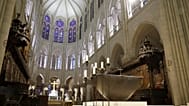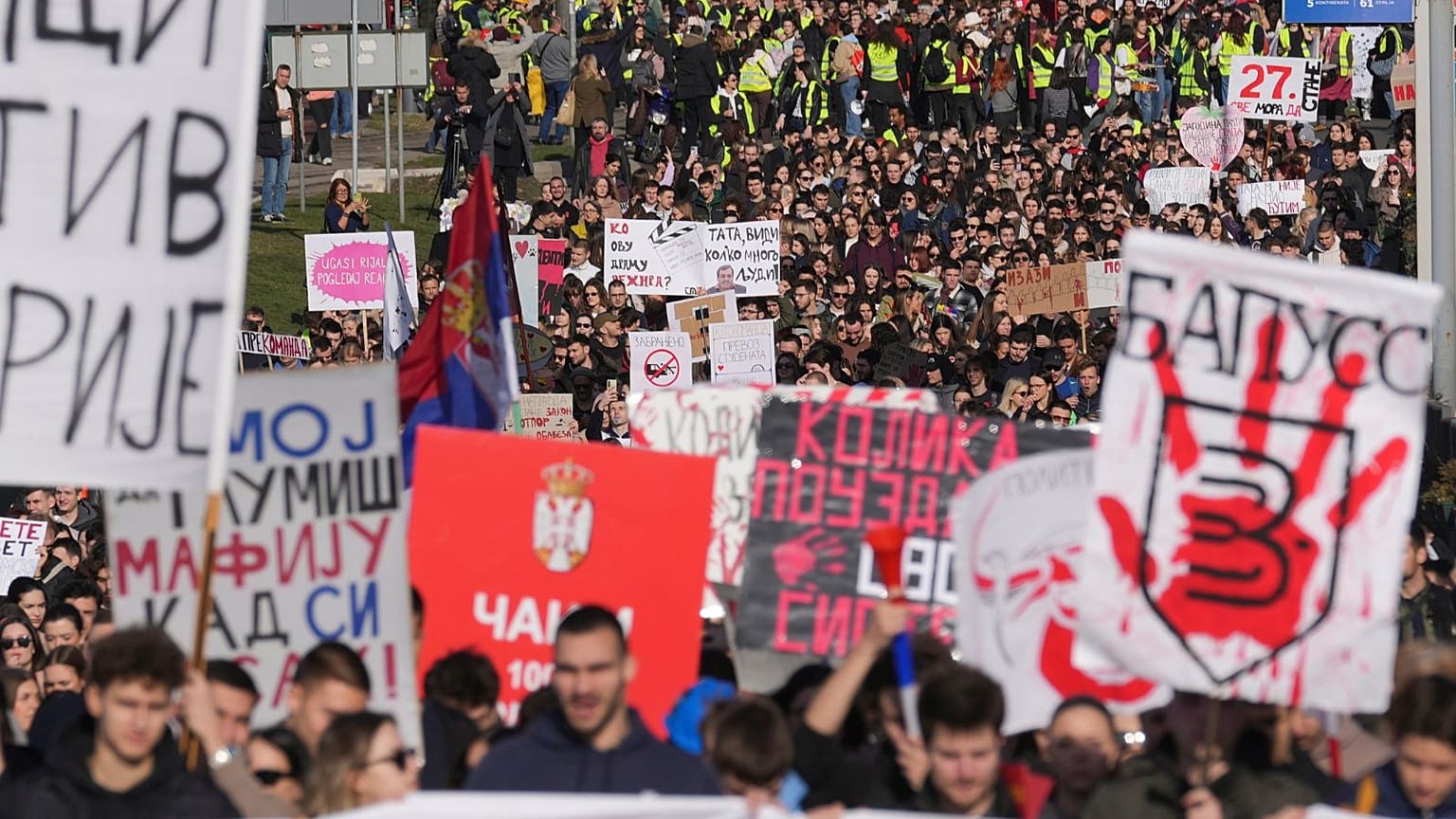Thousands of citizens joined the blockade that followed weeks of protests demanding accountability of the deadly accident in the northern city of Novi Sad that critics have blamed on rampant government corruption.
Striking university students in Serbia's have launched a 24-hour blockade of a key traffic intersection in the capital, Belgrade, stepping up pressure on the populist authorities over a deadly canopy collapse in November that killed 15 people.
A campaign of street demonstrations has posed the biggest challenge in years to the populist government's firm grip on power in Serbia.
Serbia's President Aleksandar Vučić at a joint press conference on Monday with Prime Minister Miloš Vučević and Parliament Speaker Ana Brnabić, urged dialogue with the students, saying that “we need to lower the tensions and start talking to each other.”
Students in the past have refused to meet with Vučić, saying the president is not entitled by the constitution to hold talks with them.
“Any kind of a crisis poses a serious problem for our economy,” said Vučić. “Such a situation in society is not good for anyone.”
Vučić has faced accusations of curbing democratic freedoms despite formally seeking European Union membership for Serbia. He has accused the students of working for unspecified foreign powers to oust the government.
Vučić has, however, said he is willing to pardon those who want to avoid criminal prosecution.
Commenting on the demands, which include the dismissal of charges against those arrested and detained during protests, Vučić said: "We waited for the prosecutor’s office to dismiss some of the criminal charges, as there is reasonable suspicion they committed crimes. If there is no other solution, I am ready to sign a pardon for those who want it, in accordance with the law. I will do this by Wednesday at the latest.”
In a public address from the Palace of Serbia, the president said that public prosecutors’ offices have initiated criminal proceedings against 37 people for attacks on students and professors, noting that this fulfils the students’ second demand.
In addition, Vučić said that all documents related to the recent reconstruction of the Novi Sad main train station have been released.
Several incidents have marked the street demonstrations in the past weeks, including drivers ramming into the crowds, when two young women were injured.
Traffic police on Monday secured the student blockade to help avoid any similar incidents. Protesting students set up tents at the protest site, which is a key artery for the city commuters and toward the main north-south motorway.
Some students played volleyball, others sat down on blankets on the pavement or walked around on a warm day. The students also held a daily 15-minute commemoration silence at 11:52am, the exact same time when the canopy at a train station in Novi Sad crashed down on 1 November.
Many in Serbia believe the huge concrete canopy fell down because of poor reconstruction work that resulted from corruption.
Serbia's prosecutors have filed charges against 13 people, including a government minister and several state officials. But the former construction minister Goran Vesić has been released from detention, fuelling doubts over the investigation’s independence.
The main railway station in Novi Sad was renovated twice in recent years as part of a wider infrastructure deal with Chinese state companies.















